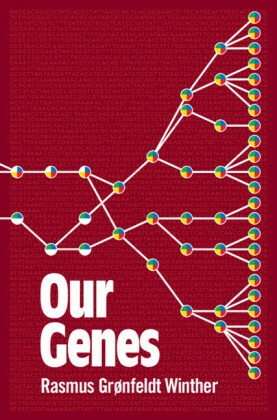Our Genes - A Philosophical Perspective on Human Evolutionary Genomics
| Verlag | Cambridge University Press |
| Auflage | 2022 |
| Seiten | 394 |
| Format | 15,1 x 1,9 x 22,8 cm |
| Gewicht | 700 g |
| Artikeltyp | Englisches Buch |
| EAN | 9781316621509 |
| Bestell-Nr | 31662150UA |
Human evolutionary genomics illuminates fascinating philosophical questions about our individual identities and collective connections.
Situated at the intersection of natural science and philosophy, Our Genes explores historical practices, investigates current trends, and imagines future work in genetic research to answer persistent, political questions about human diversity. Readers are guided through fascinating thought experiments, complex measures and metrics, fundamental evolutionary patterns, and in-depth treatment of exciting case studies. The work culminates in a philosophical rationale, based on scientific evidence, for a moderate position about the explanatory power of genes that is often left unarticulated. Simply put, human evolutionary genomics - our genes - can tell us much about who we are as individuals and as collectives. However, while they convey scientific certainty in the popular imagination, genes cannot answer some of our most important questions. Alternating between an up-close and a zoomed-out focus on genes and genomes, individuals and collectives, species and populations, Our Genes argu es that the answers we seek point to rich, necessary work ahead.
Inhaltsverzeichnis:
Preface; 1. Introduction; 2. Origins and Histories; 3. The Mind, the Lab, and the Field: Three Kinds of Populations; 4. Metrics and Measures; 5. Models and Methodologies; 6. Six Patterns of Human Genomic Variation; 7. Natural Selection; 8. Intelligence, Female Orgasm, and Future Discovery; 9. Is Race Real?; 10. The Conscious Universe: Genes in Complex Systems; Bibliography; Index.
Rezension:
'Winther's book is a synthesis of philosophical perspectives on modern evolutionary genomics, written by one of the few people in the world who have a sufficiently deep understanding of both philosophy and biology to achieve such an undertaking. It is a remarkable tour de force of the philosophy of genomics that should be essential reading for students and scholars interested in the broader implications of human genomic research. But the book will also appeal to a more general audience interested in understanding genetics and in finding out what genetics and evolutionary biology can, and cannot, tell them about the fundamental question: Who am I?' Rasmus Nielsen, University of California, Berkeley, USA

